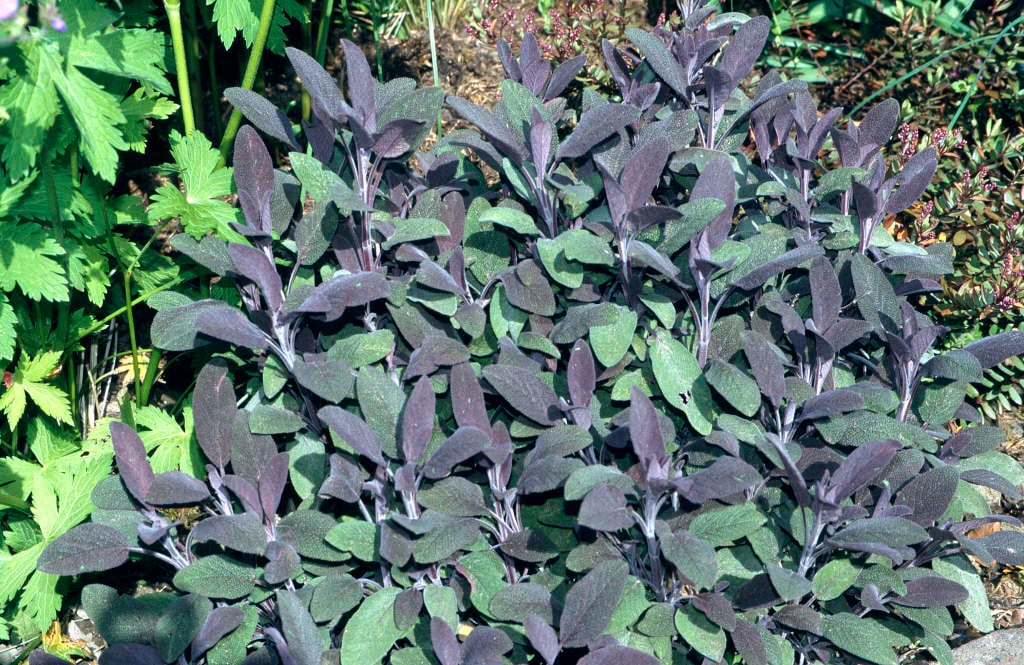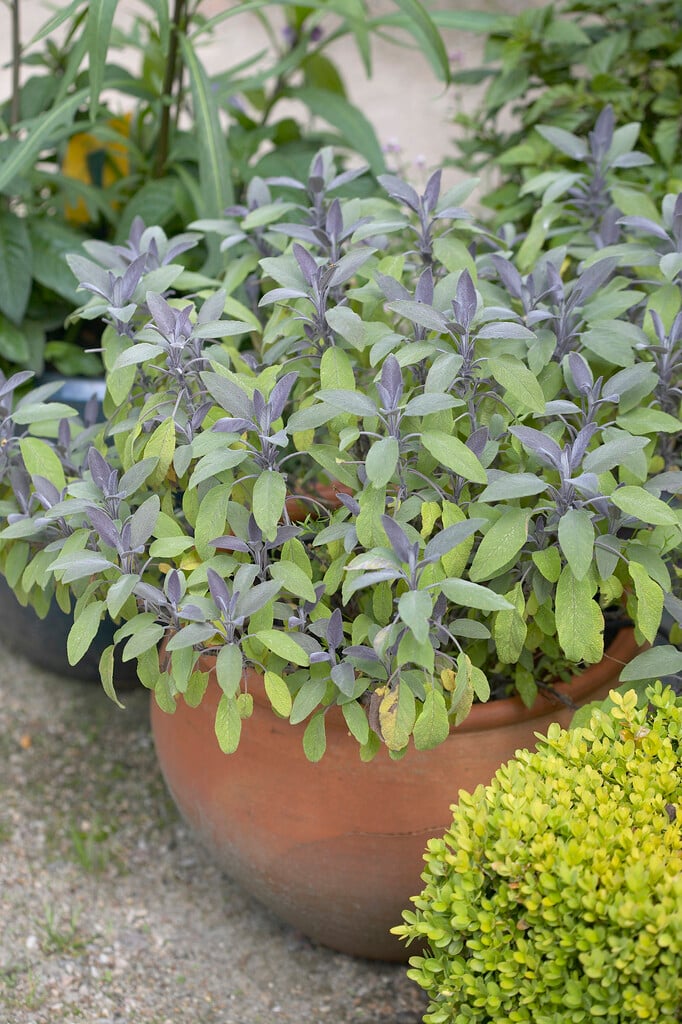Salvia officinalis 'Purpurea'

purple sage
'Purpurascens' is an aromatic, semi-evergreen dwarf shrub with purple young foliage and stems, becoming grey-green; leaves oblong, 3-6cm in length. Purple-blue flowers 2cm in length in terminal racemes
Size
Ultimate height
0.5–1 metresTime to ultimate height
5–10 yearsUltimate spread
0.5–1 metresGrowing conditions
Moisture
Moist but well–drained, Well–drainedpH
Acid, Alkaline, NeutralColour & scent
| Stem | Flower | Foliage | Fruit | |
| Spring | Green Grey Silver Purple | |||
|---|---|---|---|---|
| Summer | Blue Purple | Green Grey Silver Purple | ||
| Autumn | Green Grey Silver Purple | |||
| Winter | Green Grey Silver Purple |
Position
- Full sun
Aspect
South–facing or West–facing
Exposure
Exposed or ShelteredDrought resistance
Yes Hardiness
H5Botanical details
- Family
- Lamiaceae
- Native to GB / Ireland
- No
- Foliage
- Semi evergreen
- Habit
- Bushy
- Genus
Salvia can be annuals, biennials, herbaceous or evergreen perennials, or shrubs. They have paired, simple or pinnately lobed, often aromatic leaves and 2-lipped flowers in whorls, forming simple or branched spikes or racemes
- Name status
Accepted
How to grow
Cultivation
Thrives in a sunny spot, in moderately fertile soil with good drainage. Drought tolerant once established. Protect from excess winter wet. See sage cultivation
Propagation
Propagate by softwood cuttings in early summer
Suggested planting locations and garden types
- City and courtyard gardens
- Mediterranean climate plants
- Cottage and informal garden
- Gravel garden
- Wildlife gardens
- Flower borders and beds
Pruning
Pruning group 9 in spring. Cut back flower spikes after flowering to keep plants compact
Pests
May be susceptible to rosemary beetle, sage leafhopper and capsid bug
Diseases
May be susceptible to honey fungus (rarely), powdery mildews, verticillium wilt and foot and root rots
Get involved
The Royal Horticultural Society is the UK’s leading gardening charity. We aim to enrich everyone’s life through plants, and make the UK a greener and more beautiful place.

